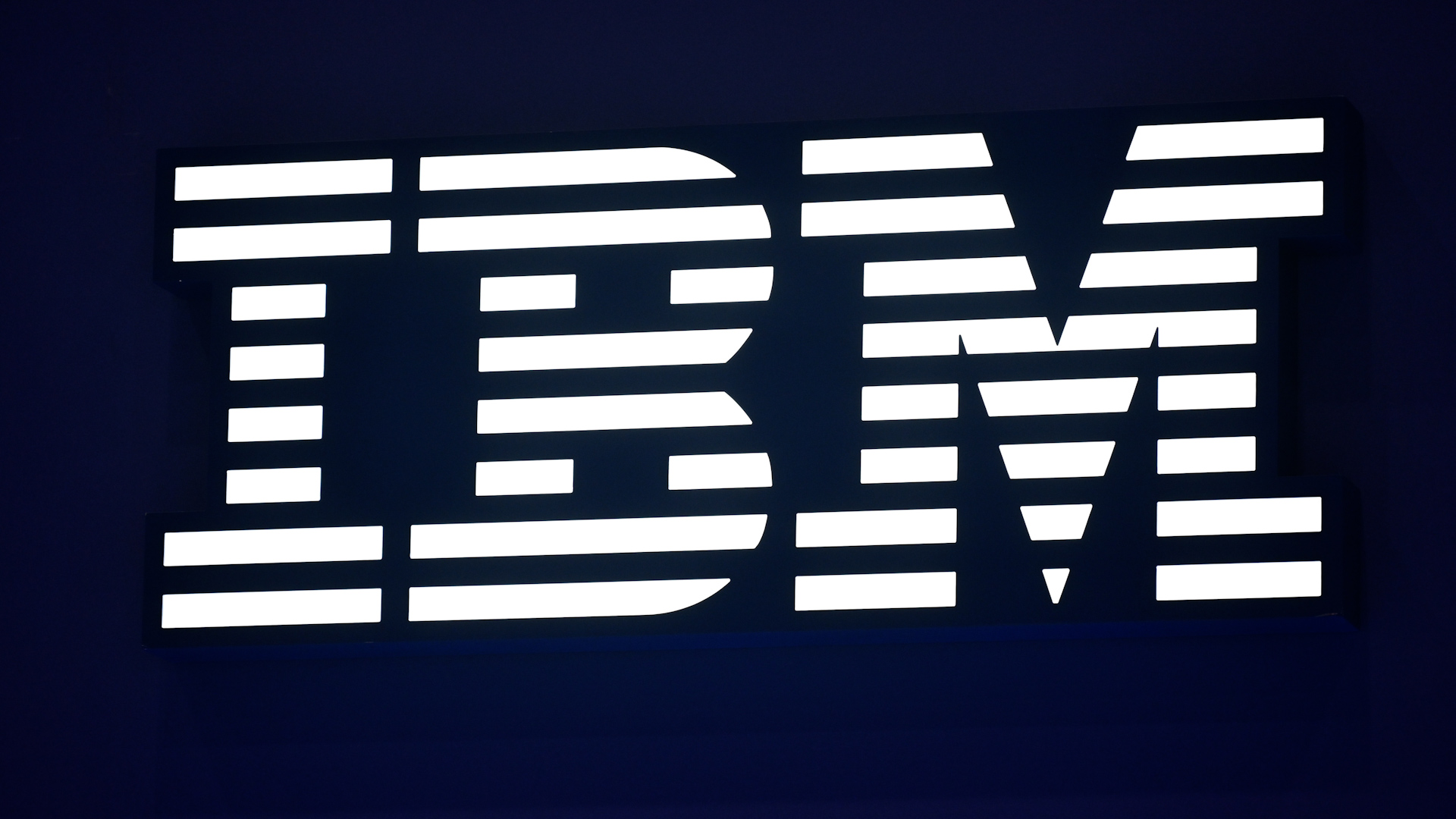RED HAT INC (RHT) Stock News
NYSE:RHT - New York Stock Exchange, Inc. -
RHT Latest News, Press Relases and Analysis


IBM Earnings Underwhelm Investors
David Bahnsen, chief investment officer at The Bahnsen Group, says recent tech results are good news for markets but investors should still be wary of overpaying. Bahnsen joins Caroline Hyde and Ed Ludlow on “Bloomberg Technology.” (Source: Bloomberg)
Mentions: IBM
Why IBM Stock Is Sinking Today
International Business Machines (NYSE: IBM) stock is losing ground Thursday despite posting a better-than-expected first-quarter report yesterday. The company's share price had fallen 7.5% as of 12:15 p.m. ET amid the backdrop of a 1.2% gain for the S&P 500 (SNPINDEX: ^GSPC) and a 1.8% jump for the Nasdaq Composite (NASDAQINDEX: ^IXIC). IBM posted non-GAAP (adjusted) earnings per share of $1.60 on sales of $14.54 billion in the first quarter.

IBM slides as federal spending cuts, uncertain economy impact consulting business
The software and consulting giant said 15 of its government contracts had been shelved due to cost-cutting initiatives by the Trump administration, amounting to roughly $100 million in lost business, a relatively small portion of its consulting backlog. Analysts said IBM's consulting business was particularly vulnerable to these cuts and weak customer spending, given its reliance on government and large enterprise clients. Its results reflected this vulnerability, with the company reporting a 2% drop in revenue from its consulting segment, but IBM maintained its target of at least 5% revenue growth on a constant currency basis in 2025.

Red Hat technology reaches new frontier — space

Axiom Space and Red Hat partner for ISS-based data center mission

Can IBM’s Q1 Earnings Spark a Breakout for the Stock?
IBM leverages its established foundation and strategic shift towards hybrid cloud and AI, presenting a potentially undervalued opportunity for tech investors.

Unpacking Q4 Earnings: IBM (NYSE:IBM) In The Context Of Other IT Services & Consulting Stocks
The end of an earnings season can be a great time to discover new stocks and assess how companies are handling the current business environment. Let’s take a look at how IBM (NYSE:IBM) and the rest of the it services & consulting stocks fared in Q4.
NexGen Cloud secures $45m to bolster AI infrastructure
Rather than owning its own data centres, NexGen Cloud offers high-performance computing resources to hyperscalers through long-term agreements.
Mentions: AKAM



Red Hat Amphitheater rides banner year with change ahead

Red Hat buys Boston area tech firm in effort to boost focus on AI

How IBM Soared 13% While Markets Sank in Q1 2025
IBM's stock defied market trends with a 13% gain in Q1 2025. Here's how Big Blue pulled off this impressive feat while the S&P 500 struggled.

Big Blue's Big Shift: IBM's Turnaround Bet on Cloud and AI
IBM's focus on hybrid cloud and AI shows progress as strategic shifts and improved financials signal a potential resurgence for the technology giant.

5 things to know before the stock market opens Thursday
Here are five key things investors need to know to start the trading day.
Mentions: TSLA

Red Hat buys Boston area tech firm


Triangle execs — from Red Hat to Wolfspeed — say AI must be embraced, not feared

IT leaders: What’s the gameplan as tech badly outpaces talent?
With the pace of gen AI adoption accelerating across all business sectors and functions, required skills are increasingly in demand — but the people out there able to meet needs are in short supply.
1 Stock Warren Buffett Could Target Next With Berkshire's $334 Billion Cash Pile
Frontier Communications Parent is a merger arbitrage worth exploring.

ORANY Leverages Red Hat Solutions to Boost its Cloud Transformation
Orange teams up with Red Hat to integrate containerized and virtual network functions using Red Hat OpenShift and Red Hat Ansible Automation Platform.

Former NFL player Chris Kluwe arrested after attacking ‘corrupt’ Maga movement
Former NFL punter Chris Kluwe was arrested in California on Tuesday after protesting against what he said was a tribute to the Maga movement

Top Wall Street analysts pick these 3 stocks for attractive dividends
TipRanks' analyst ranking service spotlights three dividend-paying stocks, including International Business Machines and Verizon.
Mentions: IBM

Red Hat's take on open-source AI: Pragmatism over utopian dreams
The Linux giant envisions AI development that mirrors open-source software's collaborative ethos. That won't be easy.

IBM rallies nearly 14%, heads for best day ever on strong earnings
CEO Arvind Krishna said that the company posted $5 billion in bookings for its generative AI segment.
Mentions: IBM

IBM Stock Jumps Pre-Market As Analysts Boost Price Targets On AI-Driven Growth In Q4: Retail Bets On Telefonica Quantum Boost
Wall Street hikes price targets on IBM’s stock as AI and Red Hat growth drive earnings, though infrastructure and consulting sales remain weak.
IBM Just Bolstered This Critical Business
In the cloud computing market, IBM's acquisition of Red Hat forms the foundation of its hybrid cloud platform. For large companies and organizations looking to modernize their infrastructures and applications, aiming to save money, remove the burden of legacy tech, or deploy new technologies like AI, IBM's hybrid cloud platform offers a path forward. The company launched its watsonx AI platform last year, providing enterprise clients with a platform for developing, training, deploying, and managing AI models and agents.

Red Hat bets big on AI with its Neural Magic acquisition
Everyone and their dog is getting into AI, but Red Hat has serious plans, and acquiring Neural Magic will help bring them to fruition.

Discover’s hybrid cloud journey pays off
The financial services company has taken a containerized approach to achieve agility and flexibility with its workloads, while exploring the long-term benefits of generative AI.

Red Hat's new OpenShift delivers AI, edge and security enhancements
The latest version of Red Hat's Kubernetes distro introduces a host of new features.

Red Hat acquires AI optimization startup Neural Magic
Red Hat, the IBM-owned open source software firm, is acquiring Neural Magic, a startup that optimizes AI algorithms to run on commodity processors.

Red Hat CEO Hicks keeps an eye on red-hot AI
Even for a person who runs one of the best-regarded technology companies, the fast pace of developments in artificial intelligence (AI) can come as a surprise.

IBM stock slips on disappointing consulting and infrastructure revenue
IBM's critical software category performed well thanks to Red Hat's gains, but consulting and infrastructure segments pulled down overall results.
Mentions: IBM

Red Hat reveals major enhancements to Red Hat Enterprise Linux AI
Only weeks after Red Hat released Red Hat Enterprise Linux AI, the company rolled out the next version: RHEL AI 1.2.
